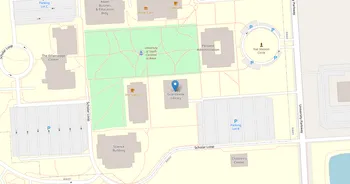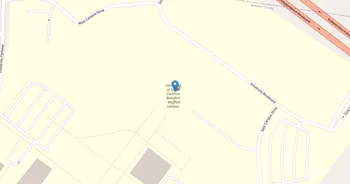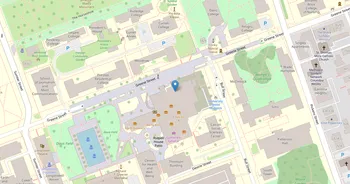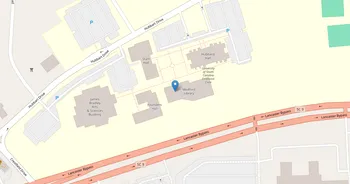Presbyterian College (PC) : Overview, Courses, Scholarships & Rankings
About Presbyterian College
Fun fact: students here rally behind the Blue Hose, a nickname with a long backstory. Presbyterian College is known for a liberal arts education that blends humanities, social sciences, and science labs with practical problem solving. Small classes and accessible faculty foster real discussion. Campus resources include well equipped labs and studios, a classic library, tutoring and writing help, counseling, and a career office that actually picks up the phone.
Student life feels active and close knit. Expect service projects, faith and civic groups, music and theater, club sports, and easy outdoor escapes in the Piedmont. The culture has a reputation for courtesy and school pride, with game day traditions that feel neighborly more than flashy. Career prep flows through internships, faculty connections, and alumni who open doors across the Southeast. Clinton adds small town ease, local placements, and quick access to larger Upstate cities.
Key Institutional Details
Contact & Profile
Academic & Institutional
Academic Programs & Fields of Study
Presbyterian College (PC) offers 22 degree programs across 14 major academic fields, graduating approximately 312 students annually. The most popular fields by graduate volume are Health (3 programs, 82 graduates), Business (2 programs, 53 graduates), Biological Sciences (2 programs, 50 graduates), Psychology (1 programs, 35 graduates) and Social Sciences (2 programs, 27 graduates). Explore program details, award levels, and graduate demographics below.
Health (3 programs, 82 graduates)
Healthcare Professions, Medical Sciences and Clinical Practice
| Program Name | Graduates | Gender Distribution | Award Levels | CIP Code |
|---|---|---|---|---|
| Physician Assistant | 35 |
|
Master's
|
51.0912 |
| Pharmacy | 25 |
|
Doctorate (P)
|
51.2001 |
| Occupational Therapy | 22 |
|
Doctorate (P)
|
51.2306 |
Business (2 programs, 53 graduates)
Business Administration, Marketing and Entrepreneurship
| Program Name | Graduates | Gender Distribution | Award Levels | CIP Code |
|---|---|---|---|---|
| Business Administration and Management | 47 |
|
Bachelor's
|
52.0201 |
| Business Economics | 6 |
|
Bachelor's
|
52.0601 |
Biological Sciences (2 programs, 50 graduates)
Life Sciences, Biotechnology and Biomedical Research
| Program Name | Graduates | Gender Distribution | Award Levels | CIP Code |
|---|---|---|---|---|
| Biology and Biological Sciences | 40 |
|
Bachelor's
|
26.0101 |
| Biochemistry | 10 |
|
Bachelor's
|
26.0202 |
Psychology (1 programs, 35 graduates)
Psychological Sciences, Mental Health and Behavioral Studies
| Program Name | Graduates | Gender Distribution | Award Levels | CIP Code |
|---|---|---|---|---|
| General Psychology | 35 |
|
Bachelor's
|
42.0101 |
Social Sciences (2 programs, 27 graduates)
Sociology, Anthropology and Political Science Studies
| Program Name | Graduates | Gender Distribution | Award Levels | CIP Code |
|---|---|---|---|---|
| Political Science and Government | 23 |
|
Bachelor's
|
45.1001 |
| Sociology | 4 |
|
Bachelor's
|
45.1101 |
History (1 programs, 16 graduates)
Historical Studies, Cultural Heritage and Archaeological Research
| Program Name | Graduates | Gender Distribution | Award Levels | CIP Code |
|---|---|---|---|---|
| History | 16 |
|
Bachelor's
|
54.0101 |
English (1 programs, 13 graduates)
English Literature, Creative Writing and Literary Analysis
| Program Name | Graduates | Gender Distribution | Award Levels | CIP Code |
|---|---|---|---|---|
| English Language and Literature | 13 |
|
Bachelor's
|
23.0101 |
Physical Sciences (2 programs, 10 graduates)
Chemistry, Physics and Earth Sciences Research
Education (3 programs, 9 graduates)
Educational Sciences, Teaching Methods and Pedagogy
| Program Name | Graduates | Gender Distribution | Award Levels | CIP Code |
|---|---|---|---|---|
| Early Childhood Education | 5 |
|
Bachelor's
|
13.1210 |
| Special Education Teaching | 3 |
|
Bachelor's
|
13.1001 |
| Middle School Education and Teaching | 1 |
|
Bachelor's
|
13.1203 |
Computer & IT (1 programs, 7 graduates)
Computer Science, Information Technology and Cybersecurity
| Program Name | Graduates | Gender Distribution | Award Levels | CIP Code |
|---|---|---|---|---|
| Computer Science | 7 |
|
Bachelor's
|
11.0701 |
Admission Requirements & Test Scores
Comprehensive overview of admission criteria, standardized test score ranges, and application requirements for prospective students at Presbyterian College (PC).
Application Requirements
Data based on IPEDS for 2022-2023 academic year. Test score ranges represent the middle 50% of admitted students (25th-75th percentile). Requirements may vary by program.
Tuition, Fees & Estimated Costs
Overview of tuition rates, housing, and other annual education expenses for undergraduate and graduate students
Financial Aid & Student Support
Summary of scholarships, grants, student loans, and financial aid statistics for undergraduate students
Student Success Metrics
Graduation rates and post-graduation earnings to help assess student outcomes and long-term value of education.
Loan Burden & Repayment Outcomes
Breakdown of loan repayment rates and student debt levels by income and dependency status.
Frequently Asked Questions
Find answers to the most common questions about Presbyterian College (PC)
How much does it cost to attend Presbyterian College (PC)?
The annual tuition at Presbyterian College (PC) is $43,300 for in-state students. When including room and board, books, and other expenses, the total estimated cost is approximately $60,509 for in-state students. Additional costs include room and board $12,713 (on) / $15,746 (off) and books and supplies $1,500.
Data based on IPEDS program completions for 2022-2023 academic year. Tuition and cost estimates are approximate and may not include all fees, personal expenses, or transportation costs.
What academic programs and degree levels does Presbyterian College offer?
Presbyterian College (PC) offers 22 academic programs across 14 major fields of study, with available degree levels: Bachelor's, Master's, Doctorate (Professional).
Most popular program areas include:
- Healthcare Professions, Medical Sciences and Clinical Practice (3 programs)
- Business Administration, Marketing and Entrepreneurship (2 programs)
- Life Sciences, Biotechnology and Biomedical Research (2 programs)
- Psychological Sciences, Mental Health and Behavioral Studies (1 programs)
- Sociology, Anthropology and Political Science Studies (2 programs)
Data based on IPEDS program completions for 2023-2024 academic year. Numbers reflect programs where students graduated, not all offered programs.
What is the acceptance rate for Presbyterian College?
Presbyterian College (PC) has an 72.3% acceptance rate and a 10.9% yield rate, making it selective.
Admission statistics breakdown:
- Total applicants: 3,359
- Students admitted: 2,430
- Students enrolled: 265
Data based on IPEDS for 2022-2023 academic year. Admission statistics may vary by program and application cycle.
What financial aid and scholarships are available at Presbyterian College?
Presbyterian College (PC) provides financial aid to 28% of first-time, full-time students, with average grants of $37,241 and average loans of $7,248.
Average financial aid amounts by type:
- Pell grants: $5,180
- State/Local grants: $8,196
- Institutional grants: $31,316
- Federal loans: $5,363
The university supports 269 students with grants and 150 students with loans annually.
Data based on IPEDS for 2022-2023 academic year. Financial aid amounts and percentages may vary by program, enrollment status, and individual circumstances.
What is the average salary for Presbyterian College graduates?
Presbyterian College (PC) graduates earn a median salary of $44,387 after 6 years and $60,194 after 10 years.
The salary range 10 years after graduation spans from $42,452 (25th percentile) to $85,285 (75th percentile).
Data based on IPEDS for 2022-2023 academic year. Salary data reflects graduates who received federal financial aid (approximately 60% of all graduates). Actual earnings may vary significantly based on program, location, and individual circumstances.
Related Universities




Found something useful? Help others discover it too! Share with friends, on social media, or save for later - every share helps someone find the information they need.